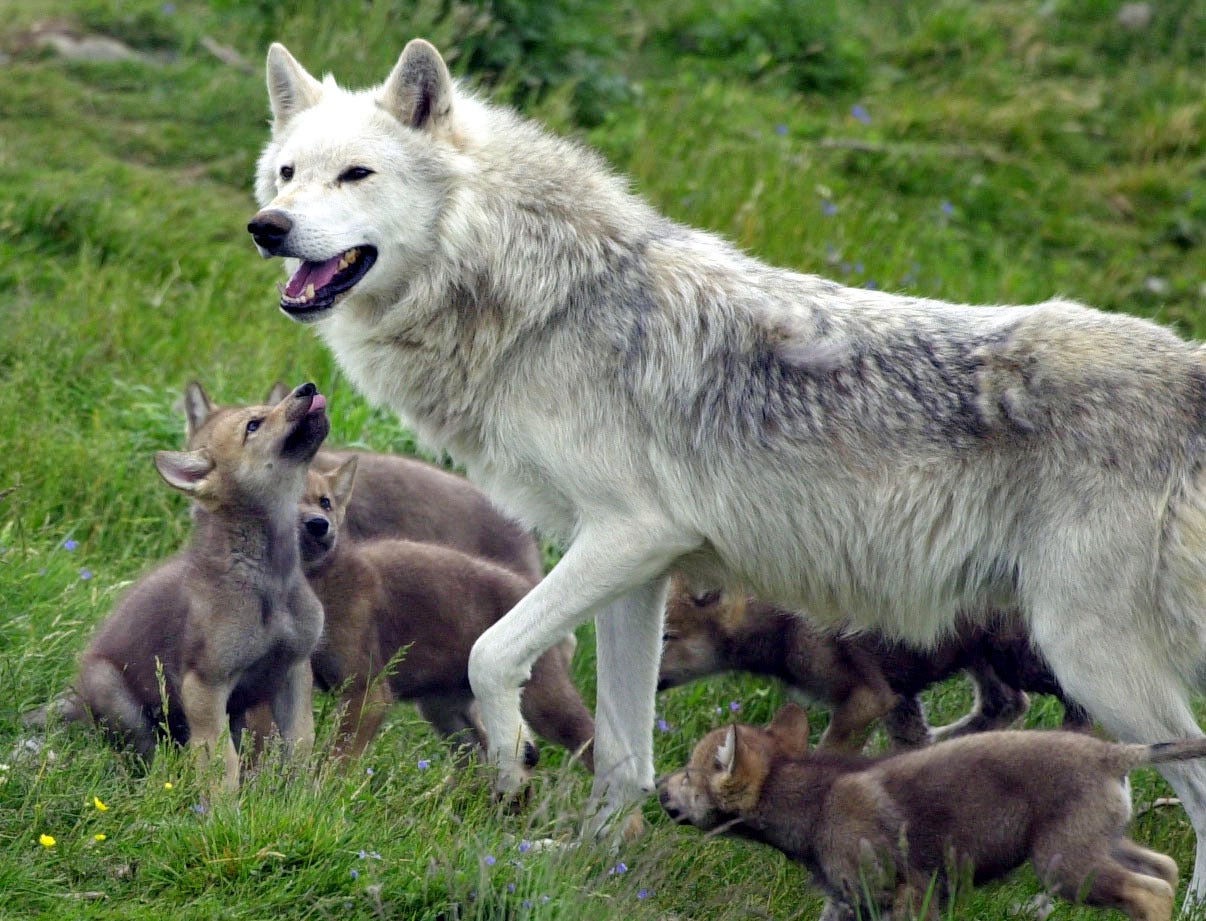France could soon be home to 500 wolves as part of species conservation plan
Proposal allows 10 per cent of wolf population to be culled each year

A plan to protect wolves in France could see their population swell to 500 in the next five years.
The proposal - which would increase the number of wolves by around 40 per cent - is designed to ensure the survival of the species in France.
The country's farmers are likely to oppose the plans, having already complained about the financial losses caused by wolf attacks on livestock.
Environment minister Nicolas Hulot’s proposal includes financial aid to help farmers protect their livestock using electric fences and herding dogs.
The plan also allows around 10 per cent of the wolf population to be culled every year to prevent attacks on herds of sheep.
Wolves once existed throughout much of Europe but came close to extinction in some parts due to aggressive hunting practices in the 19th century.
In recent decades, the species has gradually returned to several countries - including France, Italy, Slovenia and Denmark – with sightings of individual animals recorded in several others.
Last month, a wild wolf was spotted in Belgium, the first confirmed sighting in the country for more than a century.
The UK's Wildwood Trust is one of several organisations across Europe calling for the species to be actively reintroduced.
"Large predators play a vital role within the ecosystem, exerting control on prey species numbers and spread, to keep the ecosystem in balance," according to the Trust.
But they acknowledge that reintroducing species such as wolves would be problematic, too: "People’s opinion of the wolf remains prejudiced, and this poses a serious problem for obtaining support for the reinstatement of the species into this country."
According to the most recent estimates by the US-based International Wolf Center, there are now around 13,000 wolves in Europe.
But while some countries are actively reintroducing the species – or considering doing so – others are seeking to reduce their numbers.
Between 2015 and 2016, Finland culled 55 of its 290 grey wolves in an apparent bid to prevent illegal poaching by landowners seeking to protect their livestock.
The move angered environmentalists concerned about damaging wolf population numbers and genetic diversity.
Associated Press contributed to this report
Join our commenting forum
Join thought-provoking conversations, follow other Independent readers and see their replies
Comments
Bookmark popover
Removed from bookmarks